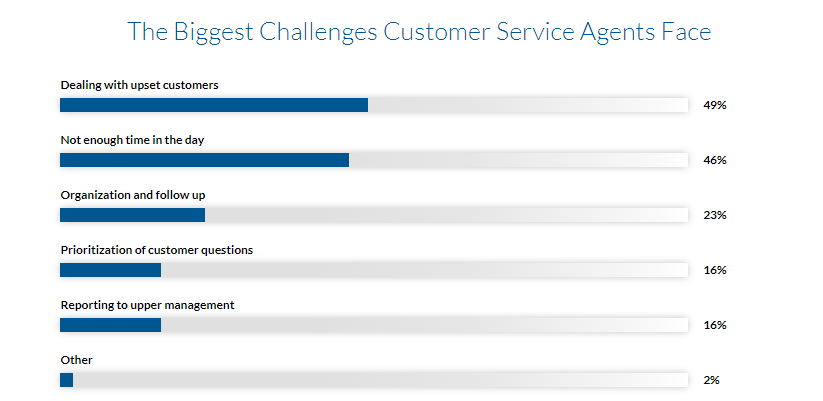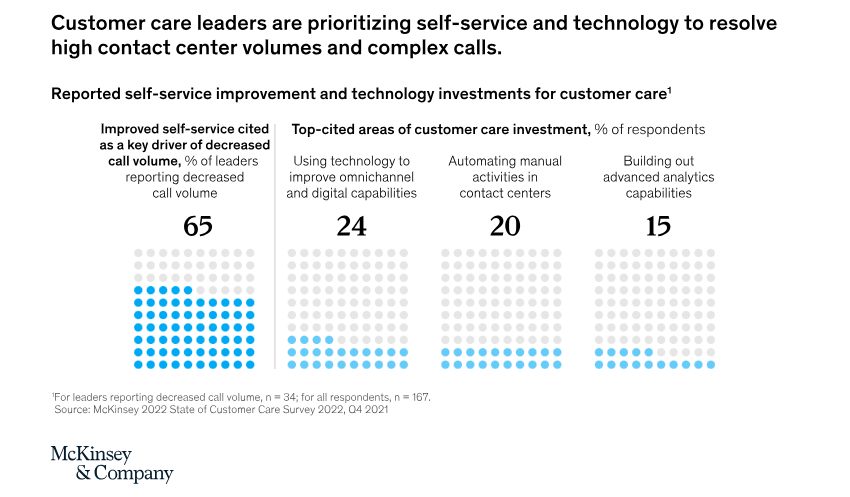A rise in the number of customers for a business comes with an increase in the number of their support requests. If not managed properly, it can become a really daunting task.
Yes, the business is working well if there are lots of customer service queries. But to ensure that it does so going forward—you need to have a robust support team and ticketing system in place. Before understanding the art of handling large support ticket volumes, you must first understand the ins and outs of customer support ticket volume, as well as the challenges associated with large ticket volumes, etc. Let’s dive right in!
What is support ticket volume?
Support ticket volume refers to the number of incoming requests or inquiries that a customer support team or helpdesk receives within a specific period, typically measured over hours, days, weeks, or months. These requests can come in various forms, such as emails, phone calls, live chat messages, or web-based forms, and they are typically generated by customers or users seeking assistance, reporting issues, or asking questions related to a product, service, or system.
Managing support ticket volume is a critical aspect of customer support operations for organizations. It helps in assessing the workload of the support team, allocating resources efficiently, and ensuring that customer issues are addressed in a timely manner. High support ticket volumes can indicate increased demand or potential problems with a product or service, while low volumes might suggest a well-functioning and stable system.
Support ticket volume can also be used as a key performance indicator (KPI) to evaluate the efficiency and effectiveness of customer support operations. Metrics such as response times, resolution times, and customer satisfaction ratings are often correlated with support ticket volume to measure the quality of support services provided.
Challenges of handling large support ticket volumes
46% of customer support agents have reported that the biggest challenge that they face is not having enough time in a working day. With such a high number of agents reporting a lack of time indicates the large number of tickets they have to deal with.
Below are the many challenges the agents have to face because of the large volume of support tickets.
- Resource Allocation: It can be difficult to allocate resources efficiently when there are many support tickets. This involves making certain that there are sufficient numbers of support personnel on hand to respond to tickets quickly while avoiding overworking the group.
- Response Times: With a high volume of tickets, maintaining fair response times becomes increasingly challenging. Customers anticipate prompt responses, and any delays might make them angry and unsatisfied.
- Prioritization of Tickets: Not all support tickets are equally crucial. Determining which tickets need to be addressed right away and which can wait can be difficult because it frequently includes evaluating the impact on consumers and the company.
- Quality Control: Even while handling a high volume of requests, maintaining the quality of support responses is essential. Rushing through responses in order to fulfill quantity goals can result in inaccurate or insufficient answers.
- Burnout: Support staff that handle a steady stream of tickets may become burned out. Lowered job satisfaction and retention concerns can be brought on by high levels of stress, repetitive work, and lengthy hours.
- Knowledge management: When handling a high frequency of queries, it might be difficult to keep support agents informed of appropriate information. It is crucial to ensure the team has access to the most recent information on the product or service. With Kapture CX’s KMS, Build customer portals, online communities, FAQs, and support centers. Take advantage of machine learning to guide customers to pertinent items in your database in order to respond to frequently asked questions.
“A satisfied customer is the best business strategy of all.”
——Michael LeBoeuf
- Customer Satisfaction: Managing a high volume of tickets might make it difficult to maintain good customer satisfaction levels. Long wait times or a perceived lack of care may irritate customers.
Organizations should employ a variety of tactics to address these issues, including workflow optimization, increased agent training, the use of sophisticated ticketing systems with automation, and ongoing process monitoring and improvement. It’s also critical to keep a customer-centric mindset, concentrating on offering top-notch service to fulfill customers’ demands even during times of high ticket volume.
Why is reducing the number of tickets necessary?
Source: Statista
In the US, 20% of consumers expect immediate response from companies on social media, followed by 24% waiting for a response within an hour.
With stakes that high, it is extremely difficult to pay attention to every customer with a high pile of tickets pending to be attended.
Reducing the number of support tickets is necessary for several reasons, primarily related to improving the efficiency of customer support operations and enhancing the overall customer experience. Here are some key reasons why reducing the number of tickets is important:
- Improved Customer Experience: When customers encounter issues or have questions, they expect timely and effective support. A high volume of support tickets can lead to longer response times and delays in issue resolution, which can result in frustrated and dissatisfied customers. By reducing the number of tickets, you can provide a better and more efficient customer experience.
- Cost Efficiency: Managing a large volume of support tickets can be costly in terms of human resources and infrastructure. Reducing the number of tickets can lead to cost savings by requiring fewer support agents and less time spent on support tasks.
- Product/Service Improvement: High ticket volumes can be indicative of recurring issues or areas where customers need more assistance. By reducing the number of tickets and addressing the root causes of common problems, you can improve your product or service, reducing the need for future support.
- Reduced Risk: A large backlog of unresolved tickets can pose a risk to your business, especially if critical issues are overlooked or delayed. Reducing the number of tickets minimizes this risk and helps ensure that important customer concerns are addressed promptly.
- Scalability: As your business grows, managing a high ticket volume becomes increasingly challenging. Reducing the number of tickets through process improvements, self-service options, and proactive communication allows your support system to scale more effectively.
- Enhanced Reputation: Providing efficient support and reducing the number of tickets can enhance your company’s reputation. Customers are more likely to recommend and continue using products or services from companies that offer exceptional support experiences.
To achieve a reduction in the number of tickets, organizations often focus on proactive measures such as improving product documentation, implementing self-service options, enhancing product quality and usability, and offering comprehensive training to customers. Additionally, analyzing the root causes of common issues and addressing them at the source can significantly contribute to ticket reduction efforts.
How to handle large support ticket volumes?
Handling large support ticket volumes effectively requires a well-structured approach and the implementation of efficient processes. Here are steps to help you handle a high volume of support tickets:
Implement a Robust Ticketing System: Invest in a comprehensive ticketing system or customer support software like Kapture CX that can automate ticket creation, organization, and tracking. Ensure that the system allows for categorization, prioritization, and tagging of tickets to streamline workflow.
Source- Deloitte
- Implement Automation: Enable automation to handle routine and repetitive tasks. For example, set up automated responses for common inquiries or use chatbots to assist with basic questions. Today, 76% of customer service executives are planning to invest in AI technologies for customer service and contact center operations.
Automate ticket routing to assign tickets to the most appropriate support agents or teams and invest in the hottest tech in the market like ML-powered NLP engines, etc.
- Self-Service Options: According to McKinsey, 65% of leaders report a decrease in the call volume when self-serve options are improved Develop a comprehensive self-service knowledge base that includes FAQs, guides, tutorials, and troubleshooting resources. Encourage customers to use self-service options before submitting tickets for common issues.
- Analytics and Reporting: Use data analytics to monitor ticket trends, identify common issues, and track agent performance. Regularly review reports to make data-driven decisions for process improvements.
- Crystal clear SLAs: Set expectations for response times and manage customer expectations regarding issue resolution. Communicate proactively with customers about known issues, updates, and expected resolutions.
- Feedback and Improvement: Collect feedback from customers and support agents to identify pain points and areas for improvement in your support processes. Act on feedback to continuously refine and optimize your support operations.
- Monitor CSAT: Regularly measure customer satisfaction through surveys or feedback mechanisms to gauge the effectiveness of your support efforts. Use customer feedback to make adjustments to your support processes and improve service quality.
- Knowledge Management: Ensure that support agents have access to up-to-date documentation and knowledge resources to assist in issue resolution. Encourage support agents to contribute to the knowledge base by documenting common issues and solutions.
Handling large support ticket volumes is an ongoing process that requires a combination of technology, well-defined processes, and a customer-centric approach. By implementing these strategies, you can better manage high ticket volumes while maintaining excellent customer support and satisfaction.
Wrap-Up
Effectively managing a substantial support ticket volume is an ongoing, multifaceted effort that hinges on the harmonious integration of technology, streamlined processes, and an unwavering commitment to customer satisfaction. The right technology tools, including ticketing systems and automation, help organize and expedite responses, while well-defined processes ensure that support teams navigate the deluge of inquiries with precision.
Talk to our product squad: Schedule a demo today!
,
,
,
,
,
,
,
,
,
,
,
,
,
















